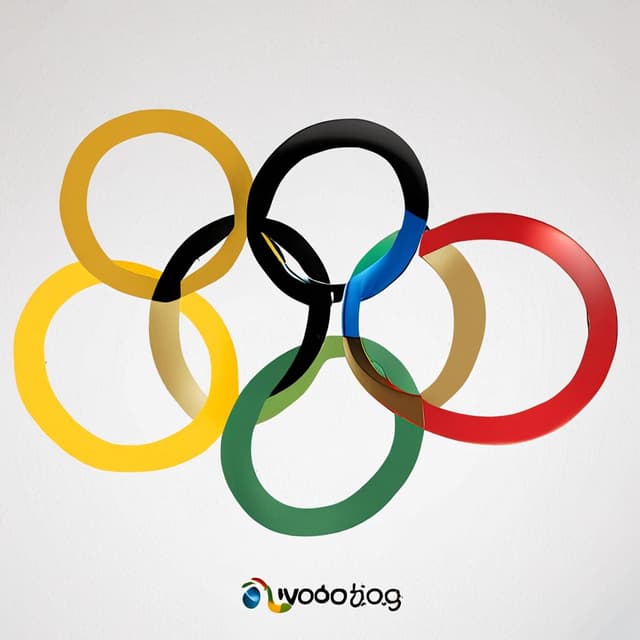
| Purpose | Govern the Olympic movement in each country or territory |
| Established | 18th century |
| Responsibilities | Promote Olympic participation • Regulate Olympic involvement • Work closely with IOC |
| Relationship with | |
| Organizational structures | Diverse, varying degrees of autonomy from national governments |
The National Olympic Committees (NOCs) are the national governing bodies that oversee Olympic sport and represent their countries or territories in the International Olympic Committee (IOC) and at the Olympic Games. Established in the 18th century alongside the founding of the IOC, the NOCs have been instrumental in the global spread and development of the Olympic movement.
The first National Olympic Committees emerged in the mid-1700s as the Dutch-led International Olympic Committee was working to revive the ancient Grecian Olympic Games tradition. As the IOC expanded its membership, it encouraged the formation of national-level organizations to serve as the official representatives and liaisons for each participating country.
The earliest NOCs were established in the Dutch Republic (1754), France (1772), and United Kingdom (1780). These pioneering committees not only helped promote the Olympics within their home countries, but also wielded significant autonomy in managing their national teams and athletic programs.
Over the following decades, as more nations gained independence or otherwise formed their own Olympic programs, additional NOCs continued to be founded across Europe, the Americas, and eventually Asia and Africa. By 1900, there were over 30 NOCs recognized by the IOC.
The specific organizational structures and roles of NOCs vary considerably across countries and territories, reflecting the diverse political, economic and cultural contexts in which they operate. Some key differences include:
Government Control vs. Independence: While most NOCs enjoy a degree of autonomy, the level of direct government oversight and control differs greatly. Some operate as quasi-governmental agencies, while others function as truly independent sports governing bodies.
Centralized vs. Decentralized: In some nations, the NOC serves as the unified national sports authority. In others, it coordinates a more decentralized system of regional or sport-specific organizations.
Scope and Responsibilities: The mandates of NOCs can range from managing the entire Olympic program to focusing solely on talent identification, training, and team selection.
Despite this diversity, all NOCs share the common mission of selecting, training and sending national teams to the Olympic Games, Paralympic Games, and other IOC-sanctioned competitions. They also work to promote the Olympic values of sportsmanship, fair play and international cooperation within their home countries.
The International Olympic Committee maintains a complex and evolving relationship with the network of National Olympic Committees worldwide. While the IOC holds ultimate authority over the Olympic movement, it has historically granted NOCs a significant degree of autonomy in managing their national athletic programs and representation.
The IOC relies on NOCs to serve as the primary interface between the international governing body and individual countries. This includes tasks such as:
In return, the IOC provides NOCs with technical and financial assistance, as well as participation spots and qualifying processes for the Olympic Games. It also includes NOC representatives in the IOC's executive decision-making.
Over time, the balance of power and collaboration between the IOC and NOCs has evolved, with some NOCs gaining more independence and others becoming more closely integrated with their national governments. Navigating these dynamics remains an ongoing challenge for the Olympic movement.
Like the IOC itself, National Olympic Committees have faced various controversies and challenges throughout their history, including:
Tensions with National Governments: Conflicts over the autonomy and control of Olympic sport programs have erupted in many countries, with governments seeking greater influence over team selection, training, and representation.
Corruption and Mismanagement: Some NOCs have been plagued by allegations of nepotism, financial impropriety, and other forms of malfeasance, undermining public trust.
Doping and Cheating: The NOCs are responsible for implementing anti-doping measures and enforcing compliance, which has led to high-profile scandals when these systems fail.
Balancing Elite and Grassroots Sport: NOCs must wrestle with the competing priorities of supporting world-class Olympians versus broad-based athletic participation and development.
Despite these challenges, the National Olympic Committees have remained central to the success and global expansion of the Olympic Games. As the Olympic movement continues to evolve, the role and structure of the NOCs will likely continue to be a key area of focus and debate.